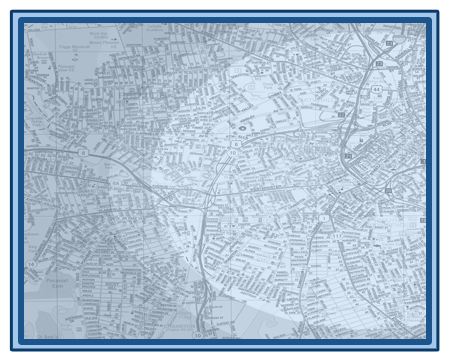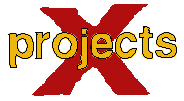
PROJECTS>>
lecture series
provflux lecture series + potluck dinner
Friday, July 13 :: 4-9p :: hosted by Firehouse 13
Passive Houses and Portable Cities :: Jason Groves
4p
In 1992, following the withdrawal of the French from a large military base just outside of Freiburg, Germany, a 100-acre area of land became available for public use. While the city planned to destroy the barracks and other outbuildings, a group of activists saved four of those barracks from the wrecking ball. SUSI, an autonomous DIY housing collective, was thereby established. The barracks were renovated over four years and are now home to over 260 people, including families, students, former homeless, asylum- seekers, and lots of kids. The grounds are also home to a full-service ceramic studio, wood workshop, bike workshop, trailer park, cafe, playground, small cinema and library (in the jailhouse of the former base), metal workshop, darkroom, food co-op, and meeting room. My talk will present this housing project--where I gained residence on May 16th and plan to live through early July--in the context of the autonomous housing collective movement throughout Germany. I will also discuss the distinctly German "Wagenplatz" land-squats, several of which can be found in Freiburg. Likewise, the Vauban district (in which SUSI is located), with its radically green architecture, including Rolf Disch´s solar-powered building that produces more energy than it consumes, also will be discussed. Finally, I would like to open up a discussion of similar projects in the states as well as possibilities for realizing similar places in Providence and beyond.
An Atlas :: Lize Mogel + Alexis Bhagat
4:30p
An Atlas is an exhibition that gathers the work of artists working with “radical cartography.” The exhibition highlights the work of artists and art collectives who represent political situations and issues through maps and diagrams. These projects range from poetic to pedagogical to conceptual. They delve into issues such as extraordinary rendition, the global prison-industrial complex, waste transfer and environmental justice in New York City, displacement of “invisibles” in India, and border issues in Mexico and in Germany. Show curators Lize Mogel and Alexis Bhagat will discuss the works from the show and explain some of the thematic issues and ideas prevalent in them.
Dissolving between Land and Sky :: Chris Taylor
5p
Dissolving between Land and Sky will present the growing body of experience from time spent engaging the particulars of the western landscape by an academic program examining the range of human interactions on the surface of the earth across time and cultures. In presenting the field experience of Land Arts of the American West (LAAW), I will explore the emergence of Land Arts as a tool of pedagogy and research, and the way direct exposure to landscape opens hermetic discourse—too often structured to limit the terrain of disciplinary specialties—and breaks the insulation of academic research from applied reality. LAAW is a field program designed to explore the large array of human responses to a specific landscape across an on-going continuum of time. Working in the land and studio, this investigation extends from geologic forces shaping the ground itself to cultural actions that define place. Within this context, land art includes everything from petroglyphs to roads, dwellings, monuments, and traces of those actions. The program examines gestures both small and grand, directing our attention from potsherd, cigarette butt, and mark in the sand, to human settlements, monumental artworks, and military-industrial projects like hydroelectric dams and decommissioned airfields.
-- break for potluck munchin' --
Subni RFID :: Phillip Nelson
6:30p
Subni is a web service which gives physical objects, places, people and things a presence on the internet by attaching these real-life objects with RFID tags which are mapped to metadata about the tagged object through the web service. Subni allows for interactions to occur in the real world via mobile pocket pc clients. The interactions Subni provides can supplement the user with both new context and location-aware gestures in the real world. In addition to this, Subni has a built-in social network so that you can chose to share meta data about tagged objects with your friends or with the entire network. The set of effects Subni could have on urban spaces and shared public spaces is noteworthy and will be discussed in detail.
Defining You :: Adriana Yoto, Michael Townsend, + Colin Bliss
7p
Malls share similar design elements as gated communities, tourist resorts and cruise ships, and they add distinct visual vocabularies and spatial dimensions that often dominate and disregard those of the cities and landscapes they inhabit. But within its boundaries exist spatial tensions and dichotomies that parallel those of the cities it wishes to outshine. Taking into full account the mall’s hidden spaces and infrastructure beyond its stores, the mall begins to mirror its urban counterpart. In reality, the mall is less of a discreet commercial island or urban anomaly, and more a reflection of the city’s spatial proportions and its precarious position as a privatized “public” space. Our study of the mall will focus on Providence Place, and its social and spatial relationship to the city. We will examine two ways in which the Mall currently enacts its role as a “definer” of people, spaces and experiences: (1) through the design and orientation of its pedestrian entrances; and (2) through the placement of and relationship between the Mall’s interior security cameras and its advertising and way-finding signage. Maps of our research can be viewed online by clicking here.
Fritz Haeg: Current Actions :: Fritz Haeg >>featured presentation
7:30p
Internationally acclaimed artist and architect Fritz Haeg will share with us some of the ideas and issues surrounding his recent work, now on display at MASSMoCA, the Whitney Museum of Art, and the Tate Modern. His visionary practices and radical methods have led to an impressive variety of actions both large and small, and have been implemented across the globe. He is the founder of the Sundown Schoolhouse, a geodesic home-based educational environment for gently radical design, literary, performing, and visual art, as well as the Fritz Haeg Studio, with the mission of practicing a fusion of the design arts responsive to humans & environments.
Current project topics will include:
Edible Estates :: "'Edible Estates' proposes the replacement of the American lawn with a highly productive domestic edible landscape. Food grown in our front yards will connect us to the seasons, the organic cycles of the earth and our neighbors. The banal lifeless space of uniform grass in front of the house will be replaced with the chaotic abundance of bio-diversity. In becoming gardeners we will reconsider our connection to the land, what we take from it and what we put in it."
Plan B: Dymaxion Projections :: "[This project] presents research on alternative and utopian communities from around the world, mostly from the 20th century. Each community was founded as a rejection of the predominate culture and society surrounding it. 'Plan B' represents the first small steps towards our planning of a new community. The research presented here will inform the process of planning and establishing this new community, which will most likely be located somewhere in rural Mexico."
Dancing 9-5 :: "From 9am until 5pm, LA's Sundown Schoolhouse will temporarily take over the Whitney Museum of American Art at Altria's Sculpture Court on Park Avenue in New York. This frenetic public space flowing with office workers will be a site for dance workshops and classes of many kinds offered throughout the day. In this corporate office across from Grand Central Station in midtown Manhattan in the middle of the winter we think New Yorkers will be eager for new ways to move!"


